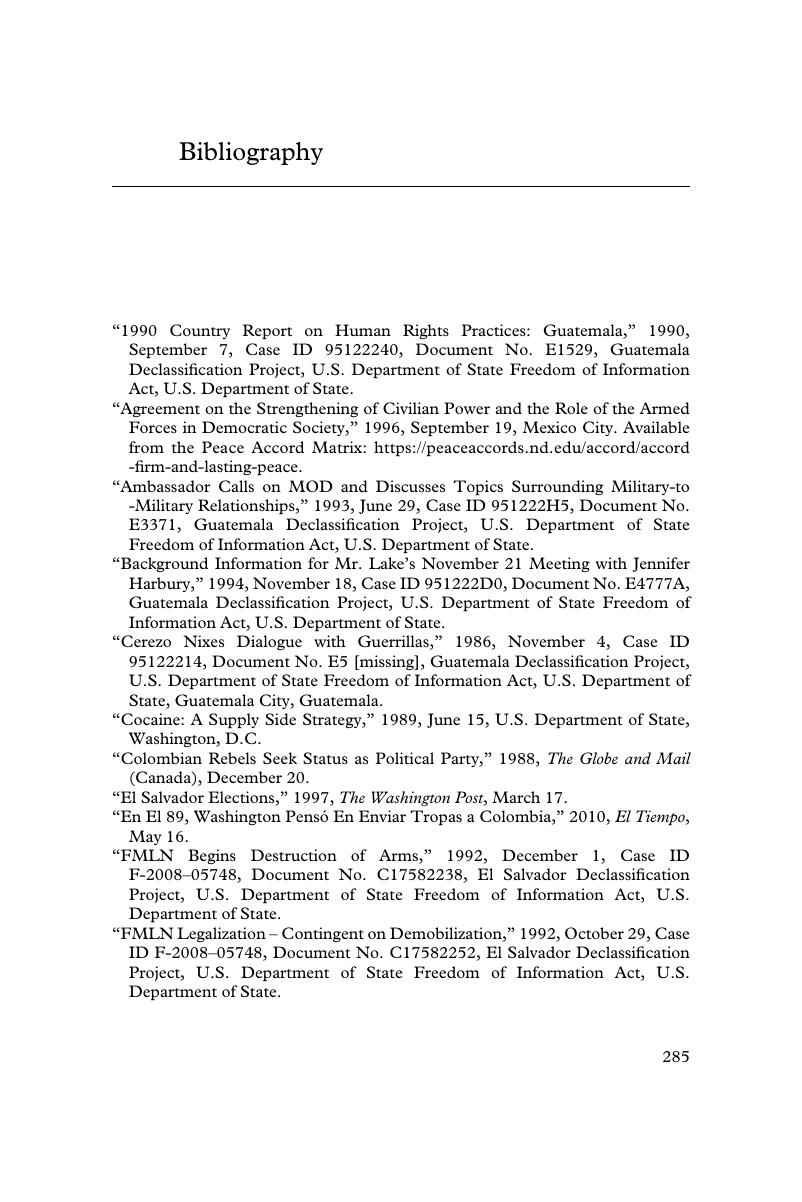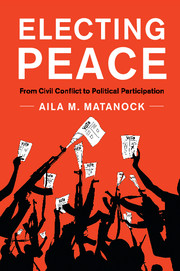Book contents
- Electing Peace
- Electing Peace
- Copyright page
- Contents
- Figures
- Tables
- Acknowledgments
- Part I Introduction and Theory
- Part II Causes of Electoral Participation Provisions
- Part III Consequences of Electoral Participation Provisions
- Part IV Conclusion
- Appendix: Formalizing the Model
- Bibliography
- Index
- References
Bibliography
Published online by Cambridge University Press: 21 July 2017
- Electing Peace
- Electing Peace
- Copyright page
- Contents
- Figures
- Tables
- Acknowledgments
- Part I Introduction and Theory
- Part II Causes of Electoral Participation Provisions
- Part III Consequences of Electoral Participation Provisions
- Part IV Conclusion
- Appendix: Formalizing the Model
- Bibliography
- Index
- References
Summary

- Type
- Chapter
- Information
- Electing PeaceFrom Civil Conflict to Political Participation, pp. 285 - 316Publisher: Cambridge University PressPrint publication year: 2017



